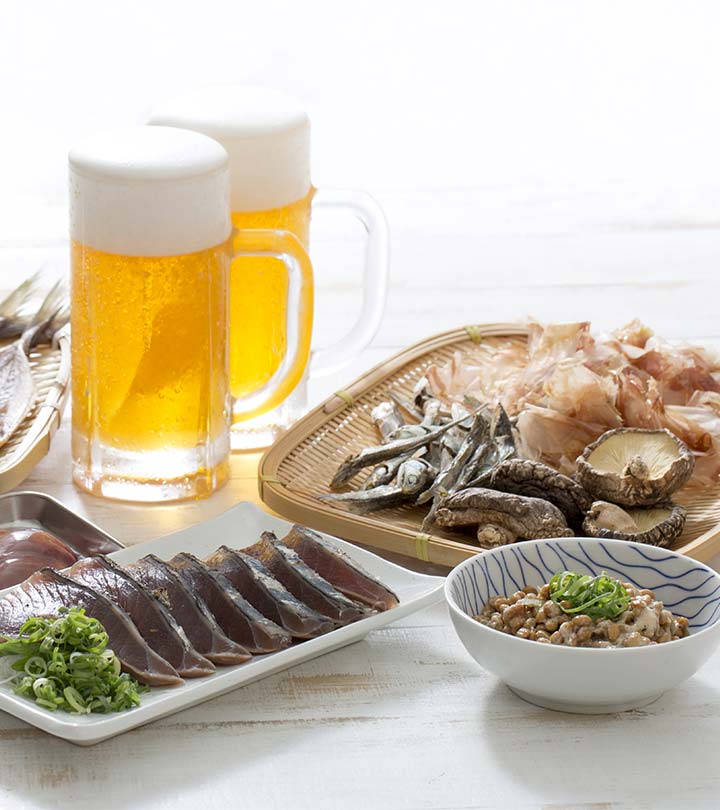Foods high in purines can raise uric acid levels, leading to the formation of uric acid crystals and painful symptoms of gout. Some examples include organ meats, game meats, certain seafood, sugary drinks, and red meats.
To naturally lower uric acid levels and manage gout, it is recommended to limit purine-rich foods, eat low-purine options, avoid certain medications, maintain a moderate weight, avoid alcohol and sugary drinks, increase vitamin C intake, and include cherries in the diet.
Additionally, foods that elevate blood acidity may aggravate gout symptoms. It is important for individuals with gout to avoid foods high in purines such as red meat, alcohol, and certain types of fish and shellfish.

High Purine Foods To Avoid
Eating a diet high in purines can have negative effects on the body, especially for those who suffer from conditions like gout. Purine compounds, whether produced in the body or consumed through high-purine foods, can increase uric acid levels. Excess uric acid can lead to the formation of uric acid crystals, which can accumulate in soft tissues and joints, causing painful symptoms of gout. To maintain a healthy diet and reduce the risk of gout flares, it is important to be aware of and avoid high-purine foods.
Seafood
While including fish in a balanced diet is generally recommended, it is essential for individuals with gout to be aware that certain types of seafood can elevate uric acid levels in the blood and potentially worsen symptoms of gout. Examples of high-purine seafood include:
- Anchovies
- Codfish
- Haddock
- Herring
- Mackerel
- Mussels
- Sardines
- Scallops
- Trout
Organ Meats
Organ meats are also high in purines and should be avoided by individuals trying to manage gout symptoms. These meats include:
- Liver
- Kidney
- Heart
- Sweetbread
Red Meats
Red meats are generally high in protein compared to other types of meat. If you are prone to gout or have high levels of uric acid, it is advisable to limit or avoid the consumption of:
- Beef
- Lamb
- Pork
- Bacon
- Turkey
Alcohol And Sugary Drinks
Alcohol and sugary drinks can contribute to elevated uric acid levels. They should be avoided or limited for individuals with gout. Examples of these high-purine beverages include:
- Beer
- Sweetened soda
- Fruit juices with added sugar
- Energy drinks
By being mindful of these high-purine foods and avoiding or limiting their consumption, individuals can better manage gout symptoms and reduce the risk of gout flares.

Managing Uric Acid Levels
Managing uric acid levels is crucial for individuals with gout, as high-purine foods can increase uric acid levels in the body. Some examples of foods high in purines include organ meats, game meats, certain seafood, and sugary drinks. By avoiding these foods and maintaining a healthy weight, individuals can naturally lower their uric acid levels and manage gout.
Limiting Purine-rich Foods
To manage uric acid levels and reduce the risk of gout flare-ups, it is important to limit the consumption of purine-rich foods. Purines are natural compounds found in certain foods that can increase uric acid production in the body. By avoiding or reducing their intake of purine-rich foods, individuals can lower their risk of developing high uric acid levels and experiencing painful symptoms associated with gout.
Eating Low-purine Foods
Incorporating low-purine foods into your diet can be beneficial for maintaining healthy uric acid levels. Low-purine foods have lower levels of purines and are less likely to cause uric acid buildup. Foods such as vegetables, fruits, whole grains, low-fat dairy products, and lean proteins like chicken and tofu are excellent options for a low-purine diet. By focusing on these types of foods, individuals can enjoy a varied and nutritious diet while managing their uric acid levels.
Avoiding Certain Medications
Some medications can actually increase uric acid levels in the body. This includes certain diuretics, aspirin, and immune-suppressing drugs. If you are prone to gout or have high uric acid levels, it is important to consult with your healthcare provider to determine if any medications you are taking could be exacerbating your condition. Making adjustments to your medication regimen, under the guidance of a healthcare professional, may help manage uric acid levels more effectively.
Maintaining A Moderate Weight
Being overweight or obese can contribute to elevated uric acid levels and increase the risk of developing gout. Losing excess weight can help lower uric acid levels and reduce the frequency of gout attacks. Engaging in regular physical activity, adopting a balanced and nutritious diet, and seeking support from healthcare professionals can aid in achieving and maintaining a moderate weight.
Avoiding Alcohol And Sugary Drinks
Alcohol and sugary drinks should be avoided or consumed in moderation by individuals with high uric acid levels or gout. Alcohol, especially beer, can stimulate the production of uric acid and impede its elimination from the body. Sugary drinks, particularly those containing high-fructose corn syrup, have been associated with increased uric acid levels. Opting for water, herbal tea, or unsweetened beverages can help manage uric acid levels more effectively.
Increasing Vitamin C Intake
Vitamin C has been found to have uric acid-lowering effects. Including foods rich in vitamin C, such as citrus fruits, strawberries, kiwi, bell peppers, and leafy greens, in your diet can help regulate uric acid levels. Additionally, vitamin C supplementation may be beneficial for individuals with gout or high uric acid levels, although it is recommended to consult with a healthcare professional before starting any supplements.
Eating Cherries
Cherries have long been associated with reducing the risk of gout attacks and managing uric acid levels. These delicious fruits contain antioxidants and anthocyanins, which have been found to lower uric acid levels and decrease inflammation. Adding cherries or cherry juice to your daily diet may help prevent gout attacks and promote overall joint health.

Frequently Asked Questions On Top 30 Foods High In Purines And How They Affect The Body
What Happens When You Eat High Purine Foods?
Eating high purine foods can raise uric acid levels, leading to the formation of uric acid crystals. These crystals can accumulate in soft tissues and joints, causing painful symptoms of gout. Some high purine foods include offal, sardines, scallops, and sweetbread.
To manage gout, it is recommended to limit purine-rich foods, eat low purine foods, maintain a moderate weight, and avoid alcohol and sugary drinks.
Which Foods Contain The Most Purines?
Foods that contain the most purines are seafood (anchovies, codfish, haddock, herring, mackerel, mussels, sardines, scallops, trout) and certain meats (beef, lamb, pork, bacon). Avoiding these foods can help manage uric acid levels and prevent gout symptoms.
What Are The 10 Foods That Trigger Uric Acid?
The 10 foods that trigger uric acid are: 1. Organ meats 2. Game meats 3. Certain seafood (herring, scallops, mussels, codfish, tuna, trout, haddock) 4. Red meats (beef, lamb, pork, bacon) 5. Turkey 6. Sugary drinks and sweets 7. High fructose corn syrup 8. Alcohol 9. Broccoli 10. Legumes To manage uric acid levels, it is recommended to limit purine-rich foods, eat low-purine foods, maintain a moderate weight, avoid alcohol and sugary drinks, and increase vitamin C intake.
How Do You Get Rid Of Uric Acid In Your Body?
To get rid of uric acid in your body naturally and manage gout: 1. Limit purine-rich foods. 2. Eat low-purine foods. 3. Avoid certain medications. 4. Maintain a moderate weight. 5. Avoid alcohol and sugary drinks. 6. Drink coffee. 7. Increase vitamin C intake.
8. Eat cherries. These steps can help lower uric acid levels and alleviate gout symptoms.
Conclusion
To maintain optimal health and prevent the onset of painful gout symptoms, it’s essential to understand the impact of high-purine foods on the body. By limiting purine-rich foods and opting for low-purine alternatives, individuals can effectively manage their uric acid levels and minimize the risk of gout flare-ups.
Incorporating a well-rounded diet that includes fresh fruits, vegetables, lean proteins, and whole grains can significantly contribute to overall health and well-being. It’s important to prioritize balanced nutrition and make mindful choices when it comes to consuming high-purine foods.


